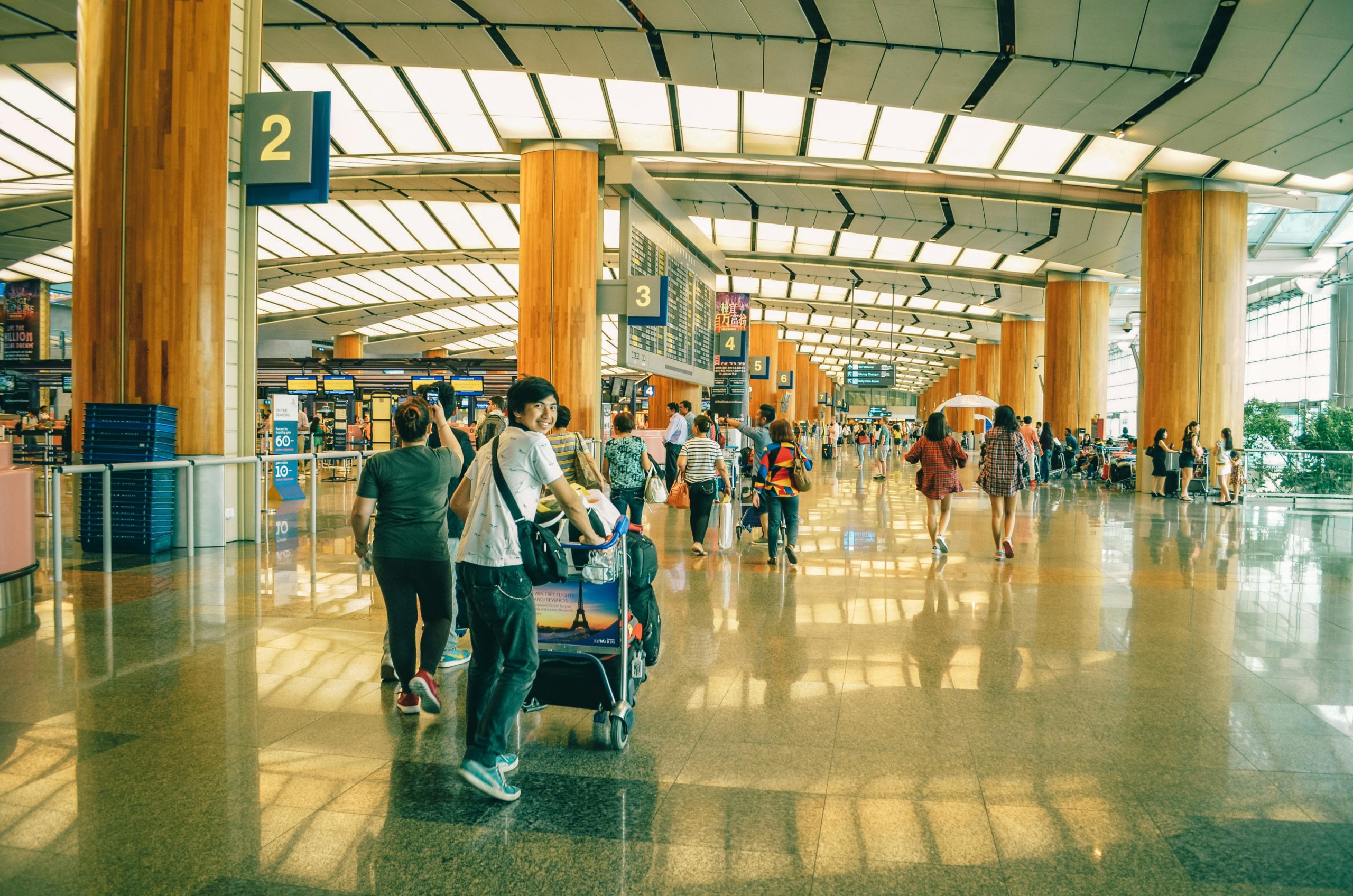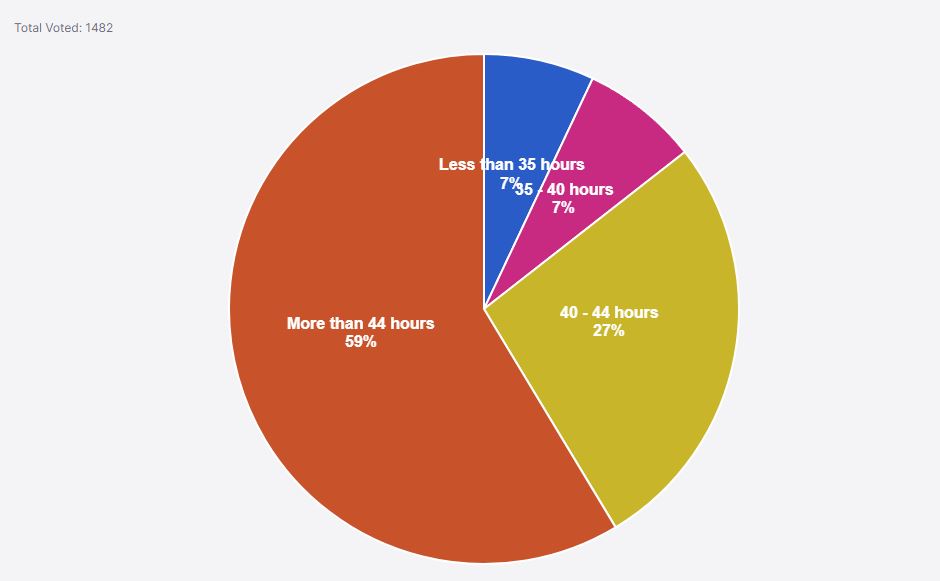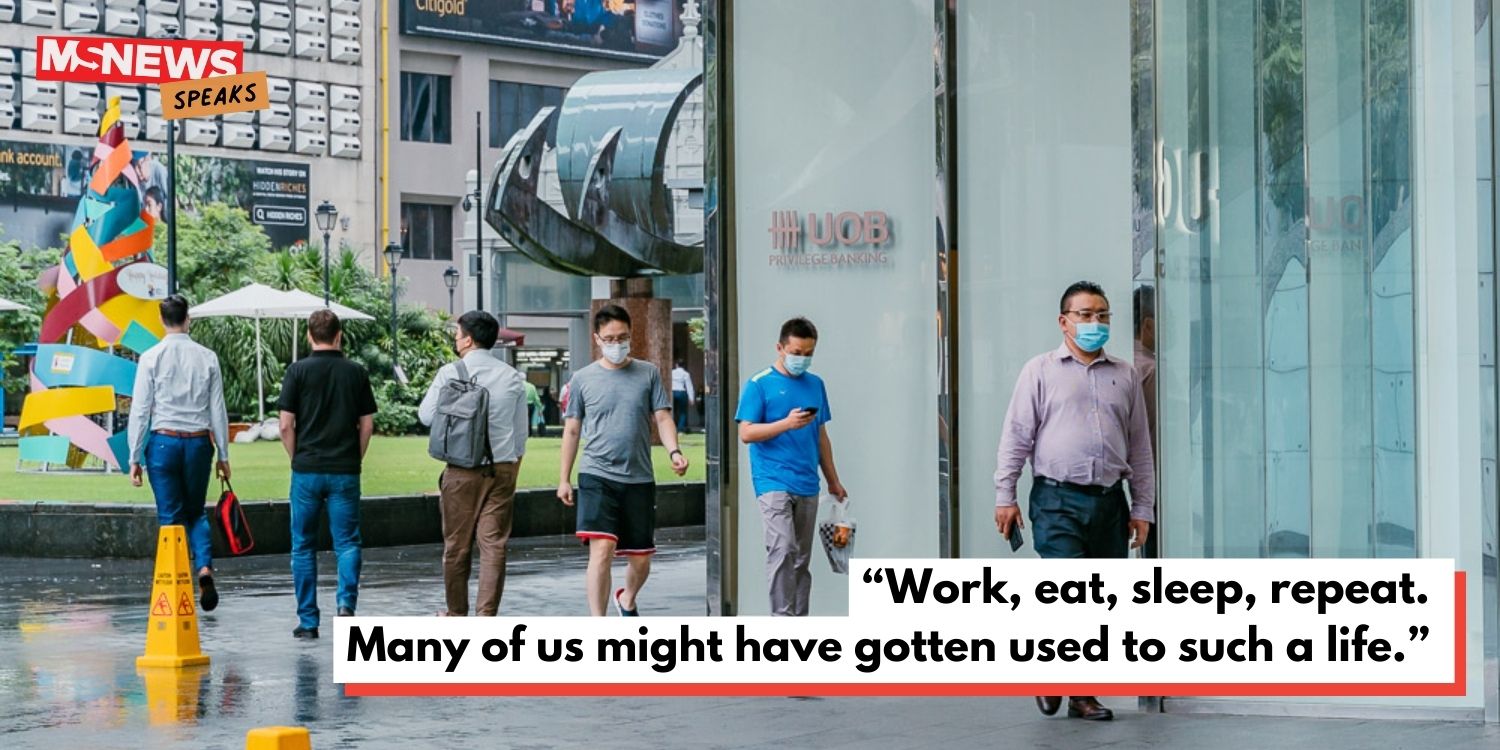Having to work 44 hours a week is not sustainable for those who want a life
I am 32 years old and work nine hours a day, 45 hours a week. There are moments when it’s difficult to find time or headspace for anything else, and we’re not just talking about social activities.
Earlier this week, one Redditor from Singapore said that they were “going crazy” from the country’s 44-hour work week.
Though my generation has reached a point where we just have to “get used to this”, the same can’t be said for many fresh graduates entering the workforce for the first time.
Are millennials and Gen Xers complicit in perpetuating the mentality that we should work this much?
Gen Z workers are discovering that having their lives being taken over by work might not be something they desire till the end of time. Maybe we should start thinking about that, too, and how we can reduce our work hours for the better.
Redditor airs grievances about 44-hour workweek
A Reddit post on the askSingapore subreddit laid bare the feelings of a person who is in their first job since Covid-19.
The user, who works from 7.30am to 5pm, feels there is little to no time to do anything after they’re done with work.

Source: Fabian Reck on Pexels
“By the time I get home and eat dinner it’s like 6.30pm and then after I bath and do my chores it’s already 7/8pm,” they said in the post, titled ‘Is it just me going crazy with the 44 hour work week in Singapore?’
“I have barely 1 – 2 hours to do ANYTHING and my eyes are too tired from staring at a computer all day that I just either fall asleep or if I stay up till midnight the next day I’m tired and barely running on coffee.”
“And it’s just like, how am I supposed to get anything done or live this way for the next 40+ years of my life?” they asked.
Sadly, many of us might have gotten used to such a life. Work, eat, sleep, repeat. Indeed, many comments echoed such a statement, telling the user that this is exactly what life is like when they get to working age, and they should get used to that.
When work gets in the way of life
However, being used to such a life has many ramifications – one of many being our fertility rate.
Singapore’s total fertility rate dropped below 1 for the first time in 2023.
In light of this issue, netizens have entertained the thought that leave entitlements should be significantly enhanced from a minimum of 7 days’ annual leave to at least 20.
“It seems to me, with the bulk of our grads and youngsters in the below S$5,000 range, a move to 20 days annual leave would give them more time in their relative youth for hobbies, self-discovery and maybe to form relationships earlier in life,” wrote one user in the Reddit post.

Source: Adrian Agawin on Pexels
However, several others pointed out that having more leave days is pointless if they cannot use them.
One user replied: “Sometimes I have so many leaves but I cannot use them at all, i.e. Your leave applied in advance can be cancelled for other colleague’s emergencies.”
“I find it so hard to get a leave so I just take an MC if I really need a mental break that day,” they added.
Others concurred, saying: “Sure, you can take all the leave if you want to. No there won’t be anybody to help clear up your work. You are expected to manage your time and get it done.”
“This is why no matter how much leave they give you also no use,” the user concluded.
The pressures to keep up with a heavy workload make it difficult for many to cultivate meaningful relationships.
Mental stressors may leave workers too tired to meet new people or hang out with loved ones in their free time.
Some may just default to “survival mode” where every second of their limited free time is spent recharging and merely surviving.
More hours worked compared to most other countries
Singapore mandates up to nine hours per day or 44 hours a week for work in a five-day workweek.
This means that the average Singaporean employee spends about a quarter of their week at work.
It might not sound that much, but it is more than what workers are clocking in other countries.
Of about 1,482 people polled on Answers.sg, 59% said that they work more than 44 hours a week in Singapore.
27% clock in between 40 and 44 hours of work a week, while 7% work 35 to 40 hours a week.

Source: Answers.sg
The last 7% of respondents work less than 35 hours a week, which translates to part-time work hours, according to Singapore’s manpower ministry.
Meanwhile, employees in Malaysia work 40 hours a week on average. According to the Employment Act, an employee’s normal working time should not exceed more than 45 hours per week.
The average worker in Singapore is thus at the office 4 more hours a week – multiply that by a year and that’s 208 hours.
In Australia, employees work up to 38 hours in a week, or 7.6 hours (7 hours, 36 minutes) each day, after which the hours are considered overtime, according to the Australian Workers’ Union.
Working more does not mean higher productivity
Even though Singapore’s workers are clocking in some serious hours, it appears that productivity has taken a hit.
For the full year of 2023, real value-added per actual hour worked declined by 2.4 per cent, extending the 0.7 per cent decline in 2022,” a 2023 Ministry of Trade & Industry report noted.
“While productivity performance for the overall economy in 2023 was supported by productivity gains in most sectors, it was weighed down by productivity declines in the manufacturing, construction, professional services, finance & insurance, and other services sectors.”

Source: Ministry of Trade and Industry
It doesn’t help when some believe that Singaporeans being less productive has something to do with working from home – one of the only ways many employees can cut long commute times.
In a Straits Times (ST) forum letter published in October 2023, a contributor opined that “people no longer work as hard as before”. He added that “working from home has been largely abused”.
In Singapore, not everything has returned to pre-Covid-19 levels. Society seems to focus on work-life balance more and more.
“Singapore has no natural resources,” he added. “The only way to become rich is through working hard. Otherwise, we will be left behind, and eventually become an average country, getting more uncompetitive, and getting poorer.”
When getting time to do other tasks while working from home is considered “abuse”, it is not easy to see how Singapore can reverse – or if it is even interested in doing so – its pro-employer mindset.
Lessons unlearned from Covid-19 pandemic
While some may be quick to point out that Gen Z workers “complain too much” and that they should just “get used to it”, perhaps these “complainers” are speaking some truth.
Covid-19 was supposed to change how we work, but the moment we came out of the pandemic, employers were quick to get employees back to the office.
Millennials and Gen Xers may also be guilty of simply upholding the status quo and not questioning enough why Singaporeans work so much at the cost of everything else.
Even during the pandemic, many found it difficult to disengage from their work as they worked from home and one in two workers even worked extra hours, according to an ST study from January 2022.
Sometimes, the reason for this may be circumstantial, such as when child-rearing or other familial issues are concerned.
But oftentimes, it may be an inability to separate the job from the home that causes this.
Going back to the office will only partially solve such issues and still lead to overworking, but this time with commutes to grapple with, to boot.
Downward spiral in productivity will continue unless something changes
Working longer hours has snowball effects in many other sectors.
Heightened stress from having more work hours can be a precursor to both mental and physical ailments, resulting in a heavier load on the healthcare system – which healthcare workers will take the brunt of.
Medical bills also fall largely on the worker, increasing their anxiety and need to work instead of taking longer mental and physical health breaks.
Should employers not take action and treat workers like human beings and not commodities so they can work for longer, instead of having to replace them when they inevitably get worn down?
That said, I realise there’s no magic bullet to solving this issue, and every stakeholder has to play their part – from the Government to employers and even employees.
We talk about the age of artificial intelligence, but instead of thinking about whether it’ll replace humans, should we not be looking into how we can leverage this so we need not work as many hours as we currently do, while retaining or even increasing productivity?
Maybe it’s about time we embrace living life instead of “getting used to” working 44 hours a week.
Have news you must share? Get in touch with us via email at news@mustsharenews.com.
Featured image by MS News.








